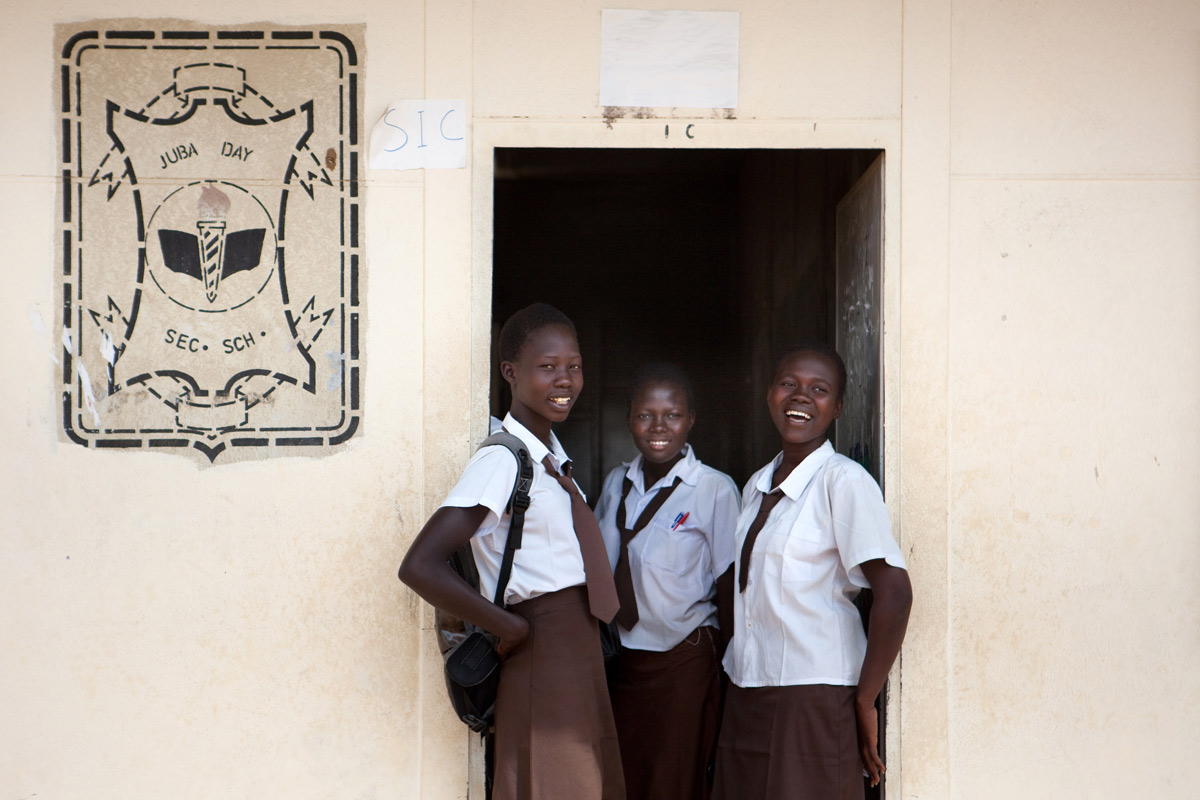
Kim Kerr
Director, Regional programs, MasterCard Foundation

Kristen Molyneaux
Senior Program Officer, MacArthur Foundation

Dana Schmidt
Senior Program Officer, Echidna Giving
Millions of children globally are struggling to obtain meaningful education due to limited access to schools, poor quality of teaching, and lack of relevance between curricula and labor market needs. In 2011, MacArthur joined with several other donors to found the Partnership to Strengthen Innovation and Practice in Secondary Education (PSIPSE), a collaborative that seeks to increase secondary education access and improve learning outcomes for marginalized populations. The partnership supports the development and testing of innovative models to address barriers to participation and achievement in secondary education, facilitates the scale-up of effective interventions through systematic change in target countries, and promotes efforts to build evidence regarding what works in secondary education.
How did the PSIPSE come to be? Why was it formed?
Kristen Molyneaux: The PSIPSE arose out of a shared desire among the founding donors to source and support innovative programs focused on improving secondary-level education in the developing world, an area that is often under-resourced and overlooked in the education field. Our organizations shared the belief that we could go further as a collective than as individual funders and that in joining we would attract more resources and attention to the field, learn a great deal from one another, and have a more substantial impact.
What have been some key learnings from working as a donor collaborative?
Kim Kerr: Those involved in the PSIPSE realized early on that there are a large number of organizations working to overcome challenges in secondary education at the country level, but few opportunities for those organizations to come together. PSIPSE's collaborative approach allowed us to reach and support a very broad range of these organizations and to bring them together to share best practices and innovative models. These efforts have been critical in creating peer groups of like-minded organizations in countries of focus and to supporting adoption of innovative models at scale. Further, the collaborative has been uniquely valuable in amassing a diverse array of evidence, which is key to making the case for scaling up particular interventions.

As a later participant in the initiative, what was the appeal of joining the PSIPSE?
Dana Schmidt: Echidna Giving joined PSIPSE when we had a staff of just one person. We knew from the research that getting girls in and through better secondary education is key for unlocking change for women, their communities, and subsequent generations. We had a significant grant portfolio to build in support of girls' education and a lean staff with which to do it. Joining PSIPSE helped us get smart about our grantmaking, fast. We were able to draw on intelligence from our donor partners, which fast-tracked our understanding of the nuances and issues in secondary education. It also allowed us to "piggyback" on due diligence conducted by other foundations to make some of our first grants to organizations headquartered in the developing world.
What have been some outcomes of the collaborative?
Kristen Molyneaux: One particularly interesting outcome has been our ability to draw learnings from a large and diverse portfolio of grantee organizations. Reports produced by Mathematica Policy Research provide helpful overviews of our work. Several findings have been valuable in directing how we approach our grantmaking (see resource links below). For example, we've learned that grantees often find their monitoring, evaluation, and learning budget to be inadequate, even when allocating up to 15 percent of project resources towards these activities. Organizations also need support with how to best develop theories of change and logic models; how to build monitoring plans; how to leverage existing data (such as application data or monitoring data) to strengthen analyses; and how to better disseminate their evidence and findings.
Dana Schmidt: Through the collaborative, donors are able to advance new perspectives on the skills and mindsets that can and should be taught in secondary school to ensure students succeed academically and in life. Because we have multiple donors thinking about these issues, PSIPSE has built a diverse portfolio of work in service of this goal.
For example, early in PSIPSE's life MacArthur-supported research helped illuminate gaps in the current system. Amita Chudgar's team at Michigan State University looked at survey data from five countries and found that secondary school graduates do not consistently enjoy higher employment rates than non-graduates, which speaks to the quality of education being received in these countries. Similarly, the ASER Center in India discovered that middle school students struggle even with basic reading and math.
Other foundations in the collaborative then made grants to demonstrate the possibility of more relevant models. The MasterCard Foundation funded organizations strengthening the connection between school and work, like Akazi Konozi and Educate!, which help youth develop skills needed to create their own jobs when they graduate. Echidna Giving funded programs to teach skills particularly important for girls, like CorStone, which trains adolescents in resiliency, which is proven to improve girls' health outcomes and hypothesized to improve their academic results.
This is a constellation of efforts far greater than what any one foundation could pursue on its own and far richer given that different foundations bring unique lenses to the work. The collaborative is poised to continue driving innovation in this space and we are planning work with Mathematica Policy Research to synthesize lessons from across the portfolio in this domain.
Related Content
PSIPSE Learning Products:
- Learnings from working as a Donor Collaborative: Catalyzing Change in Secondary Education in African and India (February 2017)
- PSIPSE 2016 Monitoring Report (August 2017)
- Policies and Programs to Improve Secondary Education in Developing Countries: A Review of the Evidence (August 2017)
- Improving Teacher Quality At Scale: 10 Tips from Practitioners (February, 2018)
Between 2011 and 2016 MacArthur invested $19.2 million and awarded 54 grants in support of girls' education in developing countries, reflecting its participation in the Partnership to Strengthen Innovation and Practice in Secondary Education.



